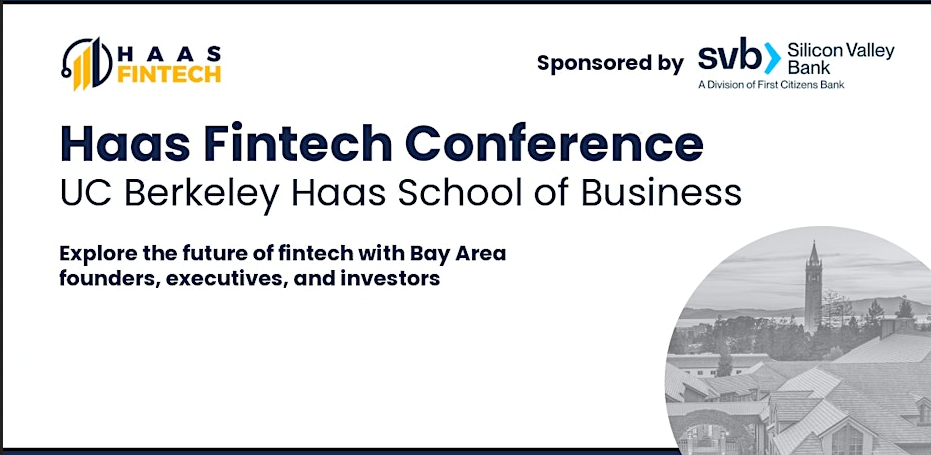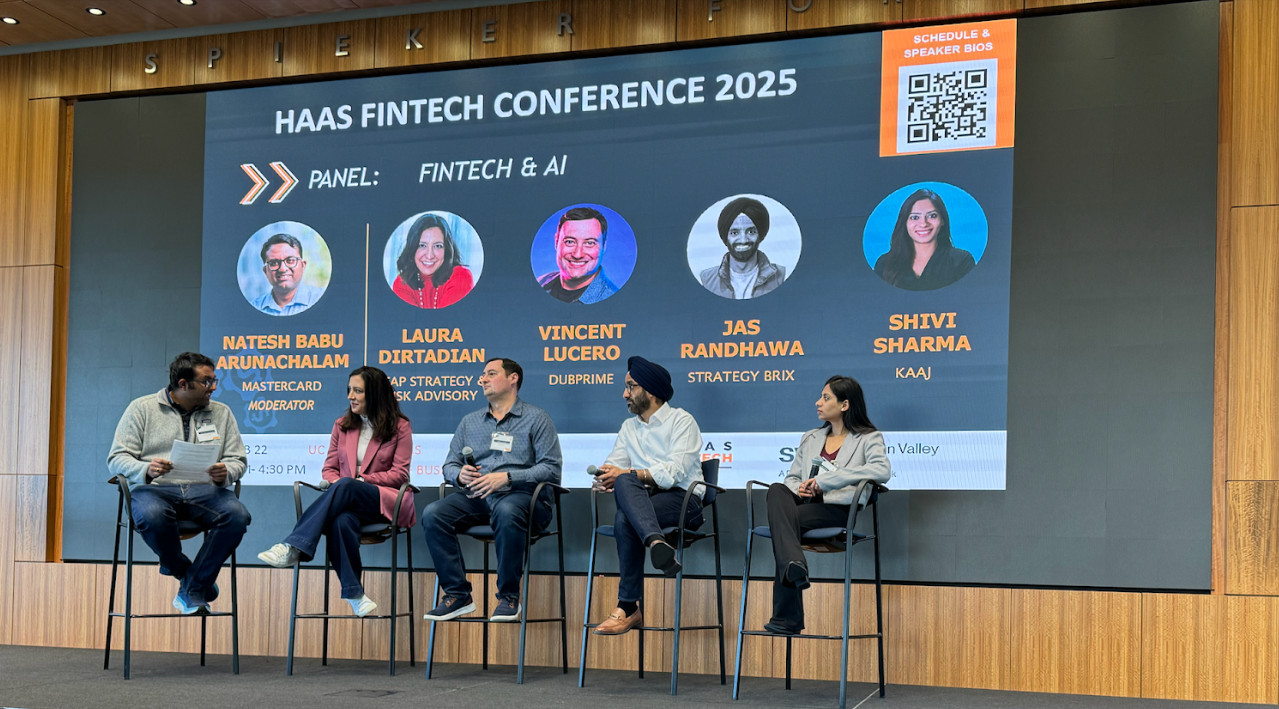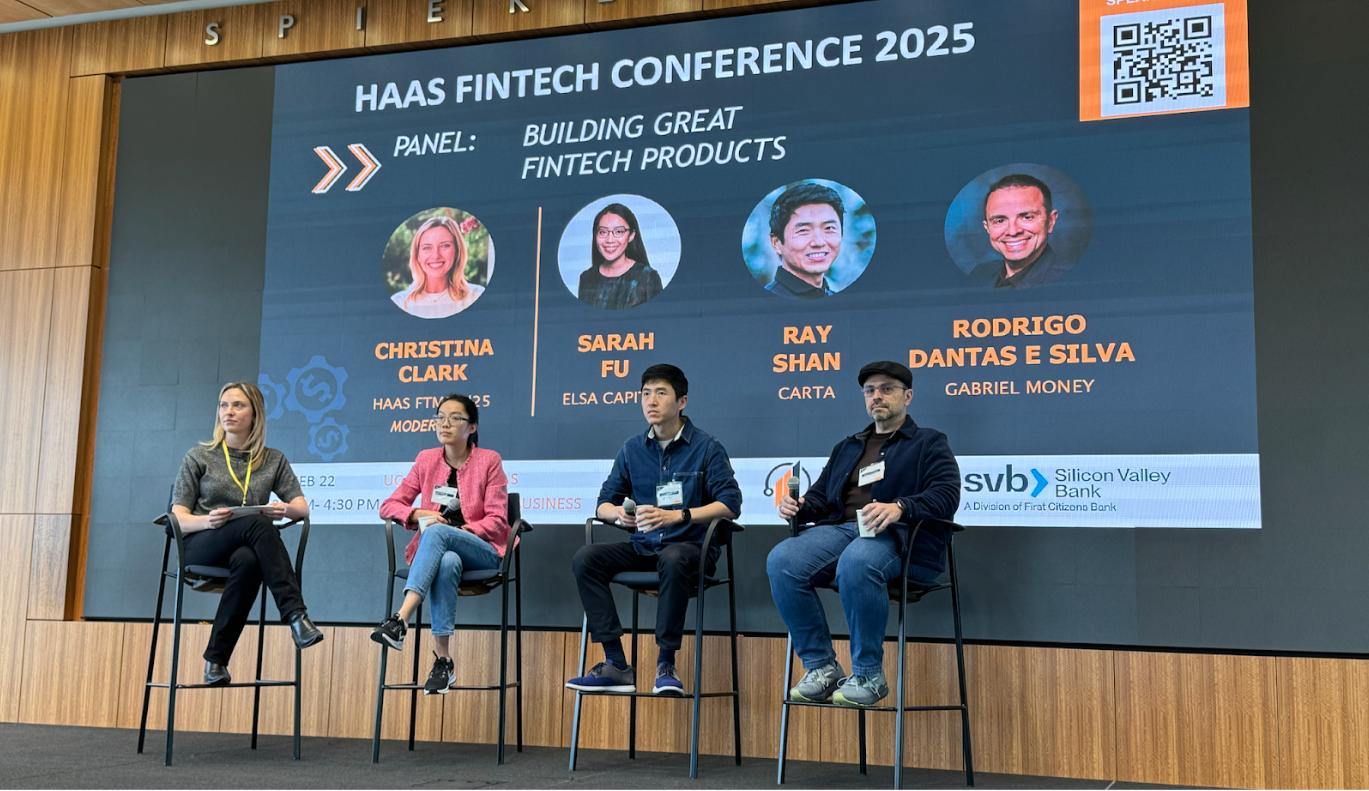
Ishita Tambat
Stanford University Student | PMI CAPM® Certified | Google Certified (Project Management) | Lean & Agile Principle Practitioner

Key Insights from the 2025 Haas Fintech Conference
I had the opportunity to attend the 2025 Haas Fintech Conference at UC Berkeley, and wow, what an experience! It was a full day of learning, networking, and diving into the future of fintech. The event, sponsored by Silicon Valley Bank, brought together some of the brightest minds in the industry, including investors, operators, and founders, all eager to share insights on the trends shaping the fintech landscape.
As someone who’s been following the fintech space closely, stepping into the world of Berkeley’s fintech innovators felt like walking into the heart of tomorrow’s financial technologies. Here are my top takeaways from the event that I believe every fintech enthusiast should know:
1. Profitability is the New FocusOne of the biggest messages of the conference came from Nick Christian at Silicon Valley Bank. He emphasized a major shift in the industry: "Profitability is back in focus—gone are the days of burning cash to go public."
This marks a significant change from the previous years where growth at all costs was the mantra. Startups that only focused on user acquisition without a solid revenue model are facing increasing scrutiny. The key now is sustainable growth—keeping customers, improving efficiency, and finding ways to monetize. As fintech professionals, this means reevaluating how we grow our businesses and focusing on long-term viability rather than just rapid expansion.
2. AI Native vs LegacyThe role of AI in fintech was a hot topic at the conference. There was a lot of talk about AI-native companies—those built from the ground up with AI at their core—versus those that simply layer AI onto existing systems.
AI-native companies have a major edge, especially when it comes to transparency. With AI influencing financial decisions, it's crucial that AI systems are explainable to both regulators and users. Transparency in AI decisions will set leaders apart from followers. As fintech product managers, we need to ensure our AI systems aren’t just effective but understandable.

3. Real-Time Credit Scoring is the Future
The traditional credit scoring model, based on FICO scores, is becoming outdated. More companies are turning to real-time underwriting powered by AI to make quick, accurate decisions. Instead of relying on static credit scores, fintech products are now analyzing real-time data such as cash flow and transaction history. This makes lending smarter, faster, and more precise. Companies like Kaaj are leading the way, offering dynamic models that help lenders assess creditworthiness on the fly. For anyone building fintech products, incorporating real-time credit scoring could be a game-changer in the future of lending.
4. M&A: Acquiring Customers, Not Just CompaniesMergers and acquisitions (M&A) were another interesting topic at the conference. Rather than acquiring companies simply to expand, fintech firms are now using M&A as a strategy to solve customer acquisition problems. Acquiring a company with an existing, engaged customer base can be a faster and more efficient way to grow than trying to build from scratch. However, this approach comes with its own set of challenges, including regulatory hurdles and operational inefficiencies. If you're thinking of building a product for potential acquisition, it’s important to consider how your product fits into a larger ecosystem.

5. Compliance Challenges: A Growing Pain Point
Compliance remains one of the biggest bottlenecks in fintech. Regulatory requirements, especially around BSA/AML (Bank Secrecy Act/Anti-Money Laundering), are still slow and manual processes. The good news? AI-driven compliance tools are starting to emerge, helping fintech companies automate compliance, making it more proactive rather than reactive. For fintech startups, keeping compliance at the forefront is critical. As regulators demand more transparency, the need for products that simplify compliance will only increase.
Final Thoughts: Building for the FutureThe 2025 Haas Fintech Conference was a clear reminder that fintech is maturing. It's no longer just about launching quickly or chasing the next big thing—it’s about building sustainable, scalable solutions that comply with regulations and stand the test of time. Key takeaways for anyone in fintech product management:
1. AI is crucial, but it needs to be structured and explainable.
2. Sustainability over rapid growth.
3. Customer acquisition is getting harder, but M&A could offer a solution.
4. Real-time underwriting and AI-driven credit assessments are the future of lending.
5. Compliance is an opportunity for innovation.
At the end of the day, the future of fintech is not just about cool tech; it’s about trust, transparency, and delivering real value. If you're a product manager or anyone building fintech products, ask yourself: How can we build responsibly and with a long-term impact?
Let me know what your thoughts are, and let's keep the conversation going!